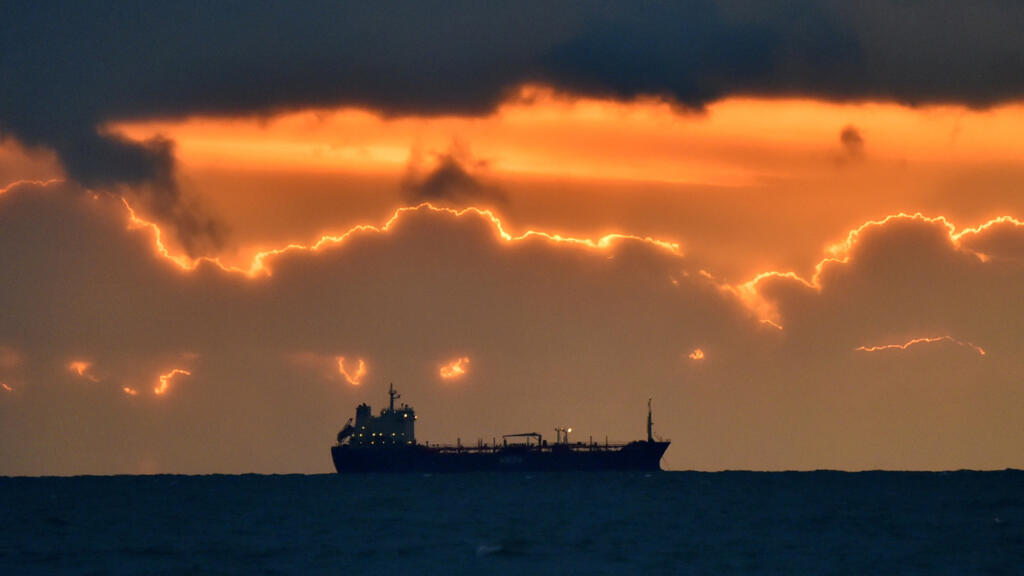Top Stories
France Launches Investigation into Sanctioned Oil Tanker Boracay

The French Navy announced on March 5, 2025, that authorities are investigating the oil tanker Boracay, flagged under Benin, for potential violations of sanctions imposed by the British and European Union against Russia. The investigation follows a report submitted to the public prosecutor’s office in Brest, indicating the vessel’s involvement in activities related to the transport of Russian crude oil.
The United Kingdom and the European Union implemented separate sanctions on the tanker in October 2024 and February 2025, respectively. According to EU officials, the Boracay has been linked to the transport of Russian oil and petroleum products, all while engaging in “irregular and high-risk shipping practices.” The UK has characterized the vessel’s activities as detrimental to Ukraine and supportive of the Russian government, particularly in the transport of oil originating from Russia to third countries.
Details of the Investigation
The Boracay, which has been recorded under different names, including Kiwala and Pushpa, changed its name in December 2024. Despite the name alterations, ships retain the same International Maritime Organization (IMO) identification number throughout their operational life. The vessel, built in 2007, is currently anchored off the western coast of France, near Saint Nazaire.
In April 2025, Estonia had previously detained the Kiwala for sailing without a valid flag, further complicating its operational history. The tanker is part of a broader network known as the “shadow fleet,” which consists of vessels involved in the Russian oil trade, often lacking clear ownership and insurance coverage. These ships are typically over 20 years old, raising concerns about safety and compliance with international maritime regulations.
Implications of Sanctions
The investigation into the Boracay highlights ongoing international efforts to enforce sanctions against Russian entities following the country’s actions in Ukraine. The situation reflects the challenges faced by maritime authorities in monitoring and regulating the activities of vessels associated with the Russian oil trade.
As the investigation progresses, the implications for the tanker and its operators could be significant, potentially affecting future operations and international relations regarding maritime trade laws. The French Navy’s response underscores the importance of vigilance in enforcing sanctions and ensuring compliance with established maritime regulations.
Overall, the scrutiny of the Boracay serves as a reminder of the complexities involved in global oil trade and the ongoing geopolitical tensions surrounding Russia’s activities.
-

 Health3 months ago
Health3 months agoNeurologist Warns Excessive Use of Supplements Can Harm Brain
-

 Health3 months ago
Health3 months agoFiona Phillips’ Husband Shares Heartfelt Update on Her Alzheimer’s Journey
-

 Science1 month ago
Science1 month agoBrian Cox Addresses Claims of Alien Probe in 3I/ATLAS Discovery
-

 Science1 month ago
Science1 month agoNASA Investigates Unusual Comet 3I/ATLAS; New Findings Emerge
-

 Science4 weeks ago
Science4 weeks agoScientists Examine 3I/ATLAS: Alien Artifact or Cosmic Oddity?
-

 Entertainment4 months ago
Entertainment4 months agoKerry Katona Discusses Future Baby Plans and Brian McFadden’s Wedding
-

 Science4 weeks ago
Science4 weeks agoNASA Investigates Speedy Object 3I/ATLAS, Sparking Speculation
-

 Entertainment4 months ago
Entertainment4 months agoEmmerdale Faces Tension as Dylan and April’s Lives Hang in the Balance
-

 World3 months ago
World3 months agoCole Palmer’s Cryptic Message to Kobbie Mainoo Following Loan Talks
-

 Science4 weeks ago
Science4 weeks agoNASA Scientists Explore Origins of 3I/ATLAS, a Fast-Moving Visitor
-

 Entertainment4 months ago
Entertainment4 months agoLove Island Star Toni Laite’s Mother Expresses Disappointment Over Coupling Decision
-

 Entertainment3 months ago
Entertainment3 months agoMajor Cast Changes at Coronation Street: Exits and Returns in 2025









